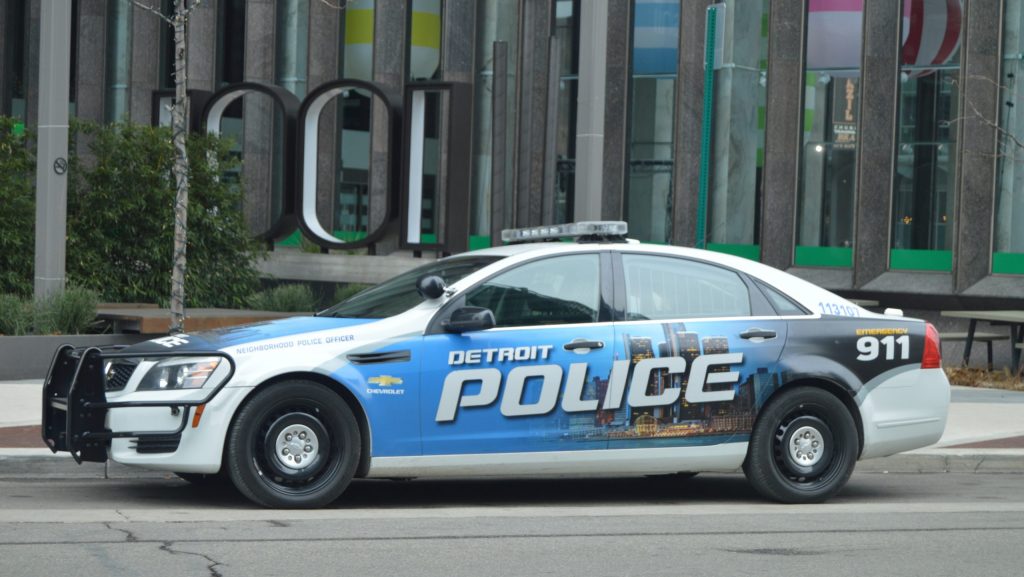The Metro: ShotStopper program creating community change in Detroit
The Metro April 23, 2024Launched in August 2023, two partnering ShotStopper groups have already seen great success in reducing violent crime in their communities.

For a long time, Detroit has had a bad rap for being a violent place.
The homicide rate peaked in the mid ’70s at about 700. But it’s been falling ever since, with that number recently landing at about 250 last year.
There are many factors for the drop. For one, Detroit’s population declined a lot in the last five decades. But the city also attributes the decline in violence to its neighborhood programs, like Shotstopper.
Subscribe to The Metro on Apple Podcasts, Spotify, NPR.org or wherever you get your podcasts.
Launched in August 2023, two partnering ShotStopper groups have already seen success. Since that time, Force Detroit has achieved a 72% reduction in homicides and non-fatal shootings on Detroit’s west side, including the Warrendale and Franklin Park neighborhoods.
What’s more, the partner, Detroit Friends and Family, reduced violence by 48% in east side neighborhoods like Outer-Drive Hayes.
Public Health & Safety Director for Force Detroit Dujuan “Zoe” Kennedy and CEO of Detroit Friends and Family Ray Winans joined The Metro to discuss the ShotStopper program and how they’re working with the community.
ShotStopper is focused on community investment and community based intervention, Kennedy says.
“And ShotStoppers is an initiative that has invested in the expertise of those from the community that practice this public health model towards violence, and those who are also credible, suitable and relevant in the community, as it relates to cycles of violence,” Kennedy said.
All 66 ShotStopper groups developed their own plan and budget to stop violence in communities throughout Detroit, Winans says.
“And so for us – Detroit, Friends and Family – what we decided to do was use more community engagement, hiring neighborhood vendors,” Winans said. “To Zoe’s point, right, folks that actually live in a community that has been there and seeing the highs and the lows of the community, but also respected in the community.
What’s making a long lasting impact is work being done across neighborhoods and in collaboration with other groups, Kennedy says. They’ve leaned on community influencers and leaders to make positive change.
“So all we’re doing is really paying attention to our people and doing the same thing that our grandmothers, grandfathers did, and our uncles and aunties did,” Kennedy said.
Use the media player above to hear the full interview with Public Health & Safety Director for Force Detroit Dujuan “Zoe” Kennedy and CEO of Detroit Friends and Family Ray Winans.
More headlines from The Metro on April 23, 2024:
- The Industrial Sewing and Innovation Center is a nonprofit and national institute for apparel manufacturing. The organization is hosting its first ISAIC Honors event on May 2, highlighting the achievements of those shaping the fashion industry. Director of Development and Communications for ISAIC Chandler Vaughn joined the show to discuss the organization and the upcoming event.
- BeBot, a remote operated cleaning robot that sifts through sand to collect litter, will be deployed at the Belle Isle Beach this summer. Konner Petz, senior mobility strategist at Detroit’s Office of Mobility Innovation, and Genevieve Rattray, director of sustainability and advocacy at the Belle Isle Conservancy, joined the show to talk about how the robot works.
- Former House Speaker Lee Chatfield was charged with embezzlement last week. MichMash host Cheyna Roth and Zach Gorchow from Gongwer News Service spoke with Senate Majority Leader Winnie Brinks to see how the legislature might respond.
- NPR’s Melissa Sevigny reports that a lab in Arizona is working to develop male birth control.
Listen to The Metro weekdays from 11 a.m. to noon ET on 101.9 FM and streaming on-demand.
Trusted, accurate, up-to-date.
WDET strives to make our journalism accessible to everyone. As a public media institution, we maintain our journalistic integrity through independent support from readers like you. If you value WDET as your source of news, music and conversation, please make a gift today.
